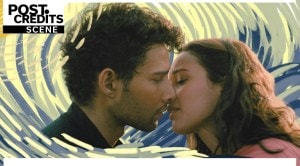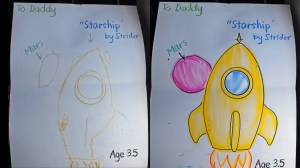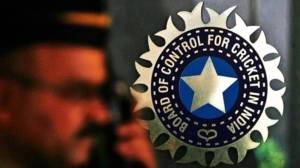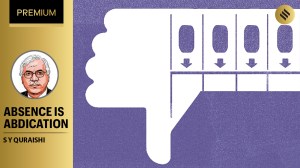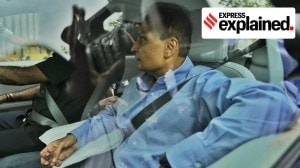Click here to follow Screen Digital on YouTube and stay updated with the latest from the world of cinema.
When documentary filmmaker Sourav Sarangi found peace and harmony in Karbala
Karbala Memoirs, which screens today, is the Kolkata-based National Award-winning documentary filmmaker’s latest personal piece on his witnessing the Arba'een Walk and its takeaways.
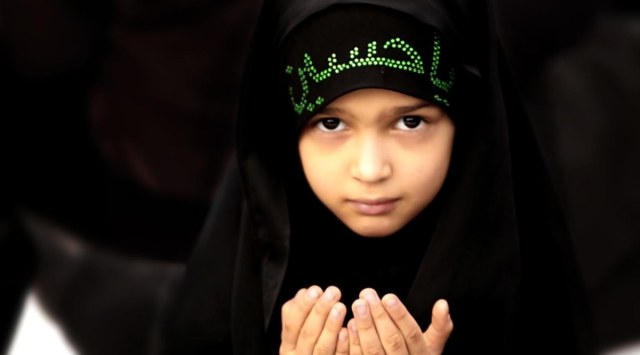 A still from Karbala Memoirs.
A still from Karbala Memoirs. Many moons ago, a little Sourav Sarangi held his father’s hand and went to a Muharram Mela, in small-town East Midnapore in West Bengal, where he grew up. He’d be puzzled, as to why crowds of people would be crying. Sarangi belonged to the Hindu faith, but his father ensured his son received a syncretic education. This one time, at night, the boy got lost in the gathering. He started crying, along with the others. For a different reason, of course. An old man, in flowing white beard, came to his rescue, consoling him until his father could find the boy. About 40 years later, he embarked on another journey, which has resulted in a documentary film, Karbala Memoirs, which is being screened online today. An invitation of an India-Iraq co-production took the National Award-winning documentary filmmaker Sarangi to Iraq.
In the 40-minute film’s trailer on YouTube, Iraqi cameraman Usama Tmimi’s lens snakes past tombstones in a desert — at Wadi-us-Salaam — the world’s largest cemetery. The graves of those who have been laid to rest, lost to injustice, as a sea of people march forth, towards the camera eye, onwards to the Karbala grounds, with flags carrying Hussain’s image. The shot cuts to women, across age groups, seated, perhaps, on a break from the days-long walk, but thumping their chests, and wailing, in collective mourning, of a son, a father who was killed. “Who’s Hussain? Everybody knows him, he’s everywhere,” wonders the filmmaker, just when his childhood memory came flashing past, all of this narrated to us in his voice-over.
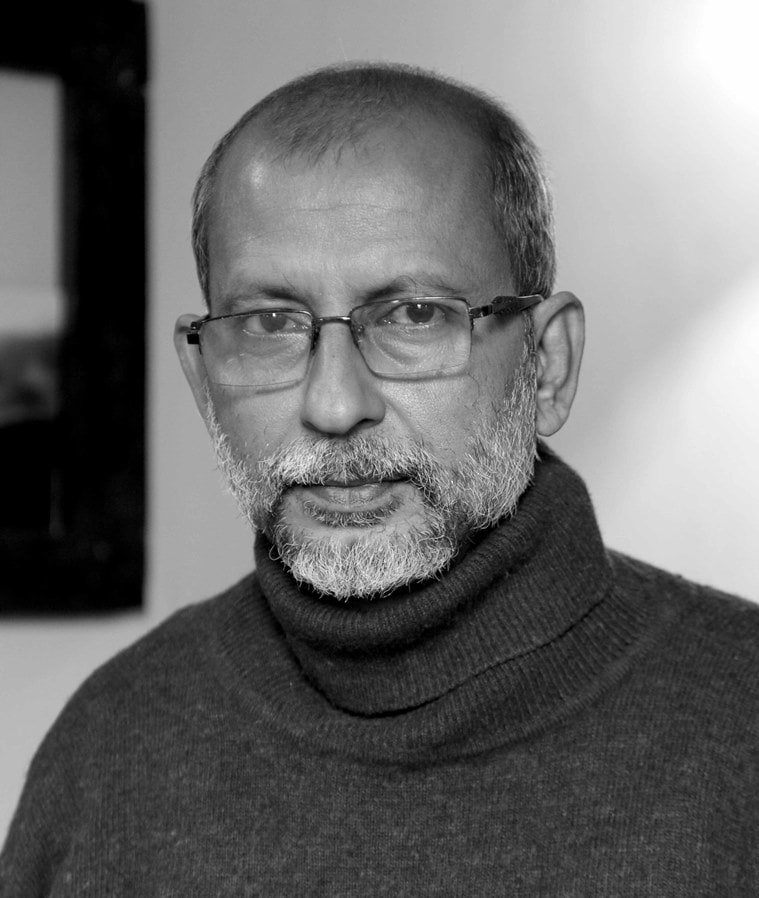 Director of Karbala Memoirs, Sourav Sarangi.
Director of Karbala Memoirs, Sourav Sarangi.
Kolkata-based Sarangi’s latest documentary, shot in 2017, but derailed by the pandemic and no wherewithal to send to many film festivals, was made to understand the huge congregation of a religious pilgrimage. Hajj, Kumbh, or Muharram was known to him, but this Arba’een walk was alien. The walk takes place 40 days after Muharram, where people walk, over a couple of days, to reach the grounds of Karbala, where the battle had taken place in 680 AD and which was bloodied again during the Iraq War in 2003-11. Millions of civilians walk to pay respect to the martyr Hussain, who was sacrificed in an inequitable battle, who sacrificed himself for justice, love and peace. The camera, in the trailer, freezes onto a little girl’s face, she’s praying, but looks starkly into the lens, her gaze is one of questioning.
The film is laced with history, legends, stories (of Noah’s Ark, the Red Sea divided, why Prophet Muhammad’s grandson Hussain was killed, who all were by his side), but of an outsider who has heard it and is narrating it to us. It harks back to the memories of a community, and yet is placed in the contemporary. “I contextualise my memory of belonging from a different community. What I witnessed was walking the talk, of harmony, of tolerance. And this is a very important memory not to be forgotten,” says Sarangi.
He found himself in the ancient land that was ravaged by war, extremism and autocracy. “I went to shoot in 2017, that year around 25 million people had congregated there from all around the world. When I was there, the IS (Islamic State) was still there, there was this perennial threat that something might explode anytime, anywhere. Anything could happen. We couldn’t touch anything,” he says.
Sarangi’s camera-eye trails the Shia pilgrims, listening in to their ballads, memories, interpretations of history, to their conversations — a Sarangi style. “I was lifted and put into this huge congregation, where I don’t even understand the language (Arabic). I stood there and observed. And I saw peace and humanity, coursing through the veins of a sea of people,” he says. The film would also be an extension of that. His observation, surge of feelings, and memories of a childhood rekindled. Albeit lost, but this time, he wasn’t crying.
The documentary form, Sarangi says, gives you “a real kick because you feel the same emotions as your subjects, with real people, without make-up, and real stories which cannot be scripted.” The lens captured the non-verbal gestures, people walking and eating together, holding hands, beating chests. On wheelchairs and prams, old and young. Women carrying photos of their sons, fathers, relatives who were killed in the Iraq War. “In spirit, it was a contemporary journey for me. It’s a collective mourning. A walk for peace and love for humanity. Not a religious commentary at all,” he says, “A mourning over a millennium, in one voice, in one pain, there were no feelings of revenge or of avenging the dead.”
At Karbala, it was a sight “of a people’s personal collective memory, and now also this personal collective memory of a war is valid, because memory is power. People must remember it, in the face of collective amnesia, erasure of history,” he says. The unbearable lightness of forgetting, of our lot, has resulted in things falling apart, and a capitalist world order feeding off this forgetting. There’s political commentary in the film, too. Past shakes hands with the geopolitical present. He trains our attention towards the West’s interest in oil in the Middle East. It is a contemporary film, drawing from a past, a historical occurrence, and a reminder of how history moves in circles, that if we don’t learn from the past, there will be no redemption for our lot. “It’s important to remember the mourning; that our brothers were killed. It’s a reminder of wars and what wars do. For as we speak, tension is mounting, as Russia inches towards Ukraine. If the war happens, imagine how many civilians will be killed?”
“We make a general notion about someone, when we see them, in a scarf or in a turban, at the corner of the street, as being different. How much do we know about them to harbour animosity? I grew up in a secular, liberal atmosphere of beautiful, peaceful co-existence, I find that missing today,” says Sarangi, “I strongly believe we are the same under the skin. Each drop of blood shed based on religious beliefs starts with a motivated propaganda, a tautology never accepted by the common mass. Each attempt to divide humanity failed and history has a habit of repeating.”
Karbala Memoirs is, then, a film capturing one of the largest peace marches that the world observes annually. One where everybody is welcome. In 2020, the film travelled to Mumbai International Film Festival, DMZ International Documentary Film Festival, Korea, Kolkata International Film Festival, and in 2021, to the South Asian Short Film Festival, where it picked up the Satyajit Ray Golden Award for the Best Documentary, and to Multicultural Film Festival, Toronto. His National Award-winning documentary Char… The No-Man’s Island (2012), a film about the people who live on islands in the Bay of Bengal, that get submerged and they are left with no identity, no home, neither can they come into India, nor go to Bangladesh. It was screened at Nandan theatre, Kolkata, very briefly, late last year. In India, as spaces that fund and screen documentary films are abysmal, the pandemic-sped digital era holds out hope for not just the young but an older generation of independent and documentary filmmakers, who have largely remained unsuccessful in taking their films to a greater audience at home.
‘Karbala Memoirs’ is being screened online by Goethe-Max Mueller Bhavan, and will be available to see in India, Pakistan, Bangladesh and Sri Lanka. Click here to register and watch the film at 6.30 pm on February 23, followed by a conversation between filmmakers Sourav Sarangi and Nilanjan Bhattacharya. The film will be available for 24 hours.


Photos
- 01
- 02
- 03
- 04
- 05















